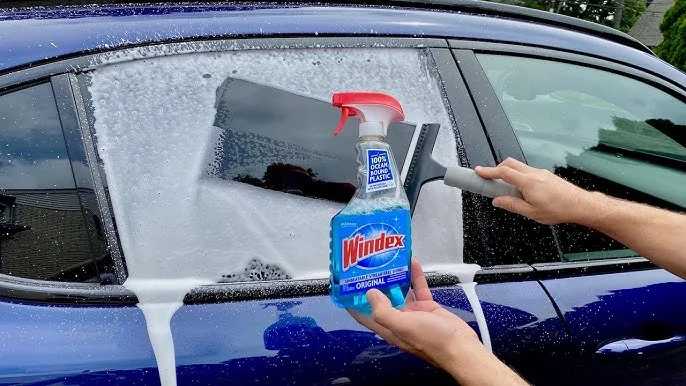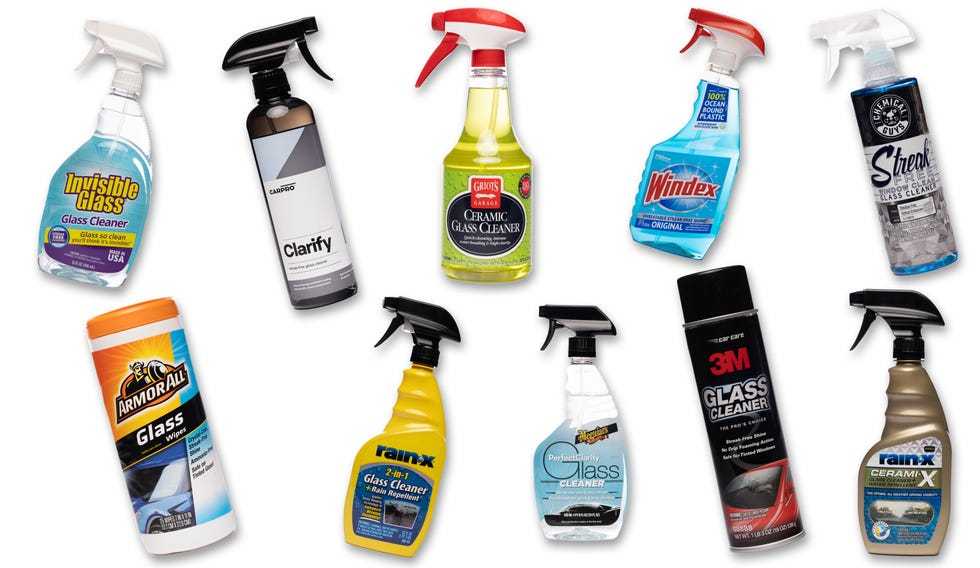Yes, you can polish car windows to make them clearer and improve visibility. Polishing can remove minor scratches, water spots, and haze, giving your car a fresh, spotless look. However, it’s important to use the right products and techniques to avoid damaging the glass.
Polishing car windows is entirely possible and can be very effective when done correctly. It’s a simple process that involves using specialized glass polish to restore clarity and shine, making driving safer and more enjoyable. Proper polishing can eliminate stubborn stains and minor scrapes, giving your vehicle a polished, professional finish. Just remember, not all products are suitable for all types of glass, so choosing the right materials and following proper steps are crucial for achieving the best results without causing harm.
Can You Polish Car Windows? A Complete Guide
If you wonder whether polishing your car windows is possible or beneficial, you’re not alone. Many car owners want to improve their vehicle’s appearance and clarity, but they aren’t sure if polishing is the right solution. This article will explore whether you can polish car windows, how to do it correctly, and what products to use for the best results.
Understanding Car Window Surfaces
Car windows are typically made of tempered glass or laminated glass, depending on their location and purpose. The surface of the glass can develop various issues over time, such as scratches, water spots, or haze. Knowing the type of damage helps determine if polishing is suitable.
Types of Damage on Car Windows
- Light Scratches: These are fine marks caused by debris or improper cleaning. They can often be polished out or minimized.
- Water Spots: Mineral deposits left by water can create a cloudy appearance that can be cleaned or polished away.
- Hazing or Cloudiness: Usually caused by oxidation or etching of the glass surface. This may require special polishing products.
- Deep Scratches or Cracks: These are generally beyond polishing and may need replacement.
Can Car Windows Be Polished?
The short answer is yes, in many cases, you can polish car windows to restore clarity and remove minor imperfections. The process involves using specific polishing compounds that smooth out the glass surface and eliminate scratches or haze.
However, it is essential to know that polishing doesn’t work for all types of damage. Deep scratches or cracks usually require professional repair or window replacement. Always assess the severity of damage before attempting to polish.
When Is Polishing Not Recommended?
- When the glass has deep cracks or chips that compromise the window’s integrity.
- If the damage covers a large area, making polishing ineffective.
- When the haze or cloudiness is caused by structural issues, not surface imperfections.
Tools and Products Needed for Polishing Car Windows
To safely polish your car windows, gather the right tools and products. Using improper materials can cause more harm than good.
Essential Tools
- Microfiber cloths: Soft and non-abrasive, ideal for applying and buffing polishing compounds.
- Polishing pads or applicators: Foam or wool pads designed for glass polishing.
- Electric buffer or polisher (optional): Can make the process faster but requires caution to prevent damage.
Recommended Products
- Glass polishing compounds: Such as cerium oxide or diamond paste, which are effective in removing scratches and haze.
- Glass cleaner: To clean the surface before polishing and remove dirt and grime.
- Water or lubricant: Used during polishing to reduce heat and friction.
Step-by-Step Guide to Polishing Car Windows
Follow these steps to ensure a successful polishing process that restores your window’s clarity without causing damage.
Preparation
- Wash the window thoroughly with glass cleaner and a microfiber cloth to remove surface dirt and debris.
- Dry the surface completely to prevent water spots during polishing.
Applying the Polishing Compound
- Put a small amount of polishing compound on the microfiber cloth or pad.
- Work in small sections, applying the compound in circular motions with light to moderate pressure.
- Use a damp cloth to keep the surface moist, which helps the compound do its job.
Buffing and Finishing
- Buff the area with a clean microfiber cloth until the surface appears clear and smooth.
- Inspect the window carefully for any remaining scratches or haze.
- If needed, repeat the process on stubborn imperfections, but avoid over-polishing to prevent creating new scratches.
Tips for Effective Window Polishing
- Test in a small area first: Always try the polishing compound on a hidden section to check compatibility.
- Use proper pressure: Too much pressure can scratch the glass; gentle circular motions work best.
- Polish in a shaded area: Direct sunlight can cause the product to dry too quickly, making polishing less effective.
- Work methodically: Cover one section at a time to ensure even cleaning and polishing.
Common Mistakes to Avoid
- Using abrasive materials not designed for glass: Can cause scratches and permanent damage.
- Applying excessive pressure: Might create deeper scratches instead of removing them.
- Skipping cleaning steps: Dirt and debris can scratch the glass during polishing.
- Rushing the process: Patience ensures a better finish and reduces the risk of damage.
Additional Maintenance Tips for Car Windows
After polishing, maintaining your car windows prevents future damage and haze.
Regular Cleaning
- Use a good glass cleaner and microfiber cloth for regular cleaning.
- Avoid ammonia-based cleaners that can damage tint films or cause haze.
Protective Measures
- Park your car in shaded areas to reduce UV exposure.
- Apply a glass sealant or protective coating to repel water and dirt.
- Address water spots and minor scratches promptly to prevent worsening.
In most cases, polishing car windows is a practical way to improve visibility and restore clarity, especially for minor scratches and haze. Using the right tools, products, and techniques can make this task easy and safe. Remember to assess the damage carefully and avoid polishing deep cracks or extensive damage, which require professional service. Regular cleaning and maintenance will keep your car windows looking clear and shiny for years to come.
How To Clear Up Streaky, Dirty Glass and Restore That Smooth, Clear View – Chemical Guys
Frequently Asked Questions
Is it necessary to prepare the car windows before polishing?
Yes, preparing the car windows before polishing is essential. Cleaning the windows thoroughly removes dirt, grime, and any residues that could scratch the glass during the polishing process. Use a glass cleaner and a microfiber cloth to ensure the surface is spotless, which helps achieve a clearer, streak-free finish.
What materials are best suited for polishing car windows?
Use a fine-grade glass polishing compound or a dedicated glass polish designed for automotive use. Pair it with a soft polishing pad or microfiber cloth to avoid scratching. These materials effectively remove minor scratches and restore clarity without damaging the glass surface.
Can polishing improve the appearance of scratched or cloudy windows?
Polishing can significantly improve the look of minor scratches and reduce cloudiness caused by oxidation or residues. However, deep scratches or extensive damage may require professional repair or replacement, as polishing might not fully restore the glass in such cases.
How often should I polish my car windows for optimal results?
Polishing your car windows every few months, or whenever you notice a decline in clarity, helps maintain their appearance. Regular cleaning combined with light polishing prevents buildup of dirt and minor scratches, keeping your windows clear and streak-free.
Are there any safety tips to follow when polishing car windows?
Always work in a well-ventilated area and wear gloves to protect your skin. Avoid applying excessive pressure during polishing to prevent damage to the glass. Additionally, test a small area first to ensure the polish does not cause any adverse reactions.
Final Thoughts
Yes, you can polish car windows to improve clarity and shine. Use a gentle glass cleaner and a microfiber cloth to avoid scratches.
Avoid harsh chemicals that may damage the glass or leave residues. Regular cleaning keeps windows clear and enhances visibility.
In conclusion, can you polish car windows? Absolutely, a proper polish can restore their transparency and shine efficiently.



